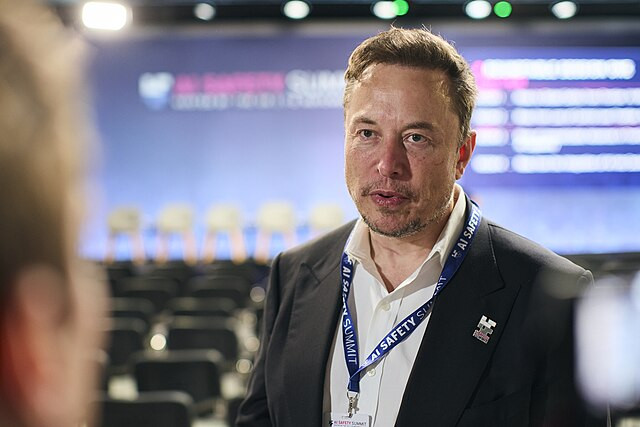President Donald Trump backed the rehiring of a Department of Government Efficiency (DOGE) staffer who resigned following the exposure of past racist social media posts, adding another twist to an already contentious staffing decision within the administration. The staffer, 25-year-old Marko Elez, was a former employee of Tesla and SpaceX before joining the DOGE team under Elon Musk's leadership.
On Friday, Musk announced that Elez would be reinstated after Vice President JD Vance and Trump signaled their support. "He will be brought back," Musk wrote on his social media platform X. "To err is human, to forgive divine."
Elez's resignation came a day earlier after The Wall Street Journal revealed his connection to an X account that had made inflammatory remarks advocating for racism and eugenics. The exposure prompted immediate backlash, leading to Elez's abrupt departure.
Trump, speaking at a White House press conference alongside Japanese Prime Minister Shigeru Ishiba, appeared unfamiliar with the controversy when asked about it but quickly sided with his vice president. "Well, I don't know about the particular thing," Trump said, before turning to Vance. "But if the vice president said that... I'm with the vice president."
The controversy escalated after Musk launched an X poll on Friday morning, asking users whether Elez should be reinstated. The poll, which garnered more than 385,000 votes, saw 78% in favor of Elez returning to DOGE, prompting Musk's decision to rehire him.
Social Media Fallout and Political Response
Elez was a member of DOGE, a task force created by Trump to cut federal spending and reduce the government workforce. His resignation had drawn mixed reactions from administration officials, with Vance arguing that online remarks should not determine a person's career.
"We shouldn't reward journalists who try to destroy people. Ever," Vance wrote on X. "So I say bring him back. If he's a bad dude or a terrible member of the team, fire him for that."
The X account linked to Elez had made several controversial statements, including a post in September that read, "You could not pay me to marry outside of my ethnicity." Another post from the same period stated, "'Normalize Indian hate,'" referencing the prevalence of Indian professionals in Silicon Valley, a comment particularly striking given that Vance's wife, Usha Vance, is of Indian descent.
Despite the controversy, Musk criticized the Wall Street Journal for its reporting, calling the journalist behind the exposé "a disgusting and cruel person" and suggesting that the reporter should be fired.
Security Concerns Over DOGE's Treasury Access
Elez's brief tenure at DOGE had already sparked concerns before the revelation of his social media activity. On Thursday, a federal judge approved limited access for two DOGE staffers, including Elez, to the U.S. Treasury's highly sensitive payment system. The order granted them "read-only" access but barred them from modifying or sharing data.
Treasury Secretary Scott Bessent defended the appointment of DOGE staffers, telling Bloomberg that they were "highly trained professionals." However, Energy Secretary Chris Wright dismissed reports that DOGE personnel had access to classified information, stating, "The government is old and maybe a little bit stodgy. We've got some young kids, think young gun management consultants, coming in to take a critical look at how things are run."
Nevertheless, the involvement of DOGE in the Treasury Department has drawn scrutiny. Some DOGE employees, including Elez, previously worked for Musk's companies, and several have little to no experience in government operations. Some are reportedly as young as 19.
Musk's Influence in the Trump Administration
Musk's role in the Trump administration has become increasingly prominent. As the head of DOGE, he has led efforts to overhaul federal spending, streamline bureaucratic processes, and implement aggressive cost-cutting measures.
On Friday, The New York Times published emails showing that DOGE staffers, including Elez, had discussed targeting funding from the U.S. Agency for International Development (USAID). The agency, which has already seen significant cuts under Trump, has reportedly been reduced from more than 10,000 employees to fewer than 300.
The administration's swift and dramatic policy changes have already led to confusion, particularly regarding trade and economic policies. The decision to rehire Elez underscores the unpredictability of Trump's second term, where political decisions are increasingly shaped by social media engagement rather than traditional governmental processes.






